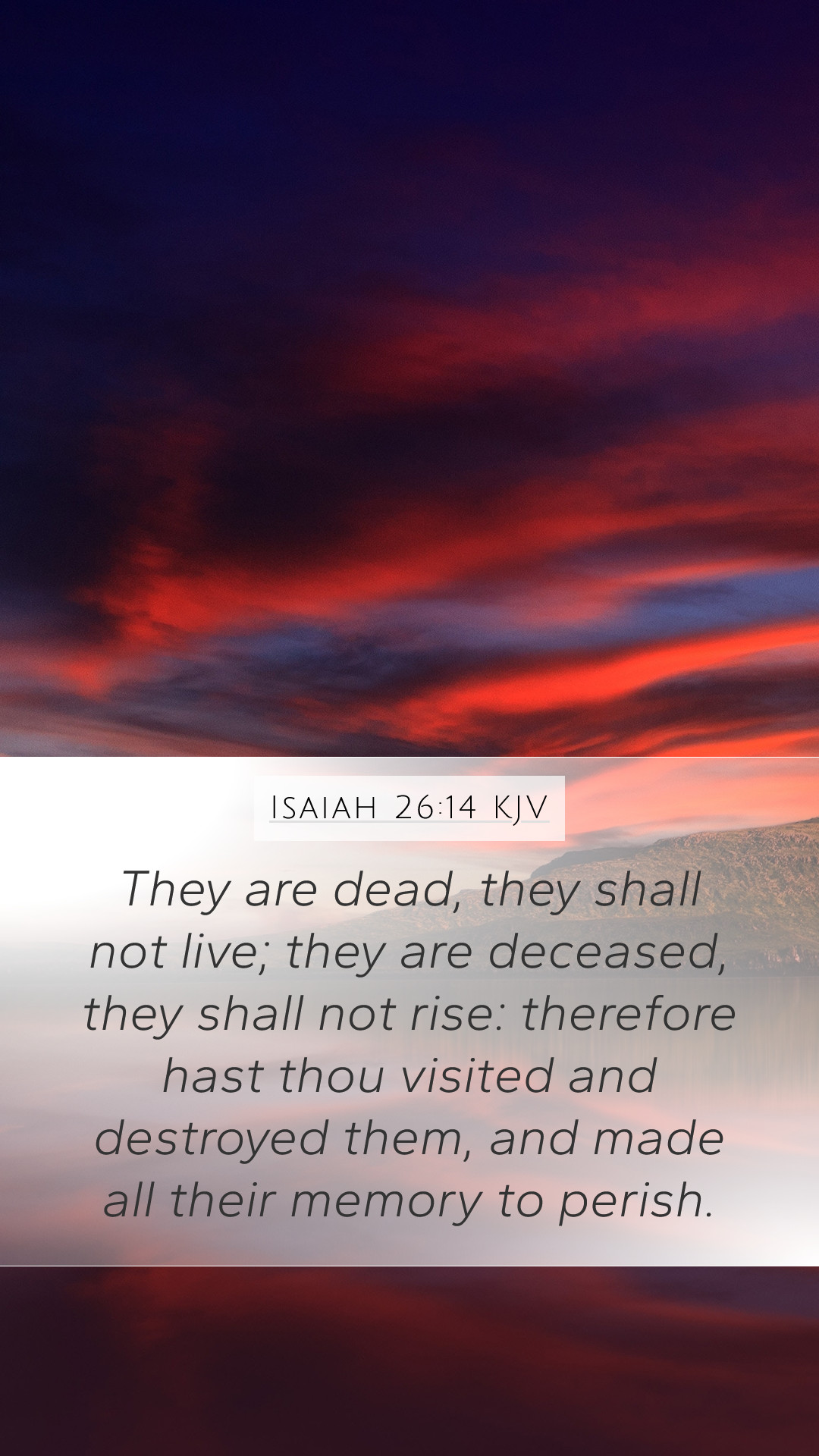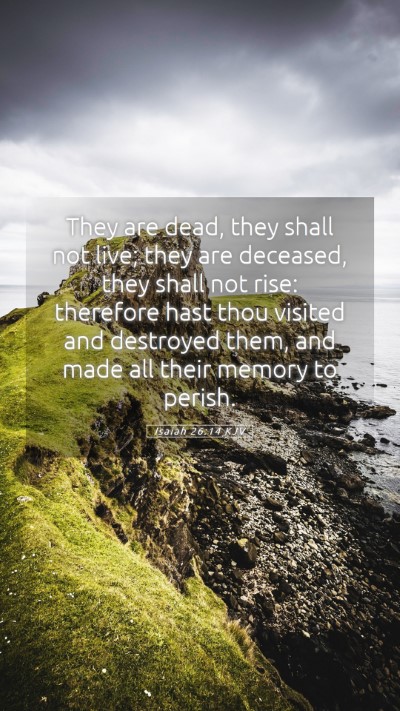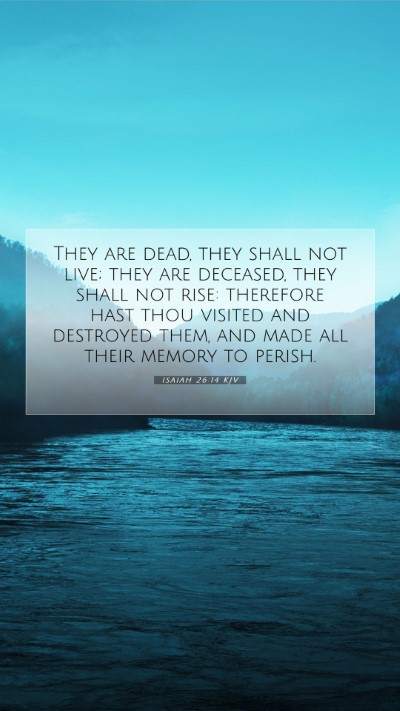Bible Verse Meaning and Interpretation: Isaiah 26:14
Isaiah 26:14 states: "They are dead, they shall not live; they are deceased, they shall not rise: therefore hast thou visited and destroyed them, and made all their memory to perish." This passage captures profound themes regarding the fate of the wicked and the finality of divine judgment. To understand this verse thoroughly, we draw insights from esteemed public domain commentaries such as those by Matthew Henry, Albert Barnes, and Adam Clarke.
Context and Background
Isaiah, a prophet in the 8th century B.C., addressed both the Israelites and their surrounding nations. This part of the book presents a stark contrast between the fate of the righteous and the wicked. In the larger context of Isaiah, chapter 26 is a song of praise that anticipates the future salvation and peace that God will bring.
Interpretation and Insights
-
Matthew Henry's Commentary:
Matthew Henry emphasizes that this verse reminds the readers of God’s sovereignty and His definitive judgment over the nations. He notes that the 'dead' referred to are those who have opposed God's ways, and their inability to rise signifies the complete and utter end of their influence and memory. This serves as a comfort to God's people, assuring them that their oppressors will not endure forever.
-
Albert Barnes' Commentary:
Albert Barnes highlights the certainty of death for the wicked, emphasizing that God's judgment leads to the ultimate extinction of those who rebel against Him. Barnes points out that the phrase "they shall not rise" can be seen as a prophetic declaration indicating the spiritual death that accompanies those who reject God. He correlates this with the ideas of resurrection, allowing one to comprehend the final separation of the righteous from the unrighteous.
-
Adam Clarke's Commentary:
Adam Clarke examines the language used in this verse, pointing to its metaphorical dimensions where death signifies a complete separation from God’s presence. Clarke interprets the destruction of memory as indicative of the eternal consequences of sin. He elaborates on the notion that remembrance of the wicked shall cease, illustrating the completeness of divine judgment.
Theological Implications
The theological themes present in Isaiah 26:14 underscore the concepts of justice, judgment, and the transient nature of earthly power. The passage serves as a powerful reflection on God's ultimate authority over life and death, further emphasizing the hope of future restoration for those who remain faithful.
Practical Applications
When studying this verse, it's crucial to derive practical lessons for today's context:
- Reassurance of God’s Justice: Believers can find comfort in knowing that God will address all injustices.
- Call to Holiness: Understanding the fate of the wicked can encourage one to pursue righteousness and faithfulness in all aspects of life.
- Encouragement for Endurance: This verse serves to strengthen perseverance in the face of adversity, affirming that God's plan will ultimately prevail.
Related Scriptures
For further study and understanding, consider examining these related scriptures:
- Psalm 37:20 - A reflection on the fate of the wicked and the enduring nature of the righteous.
- Ezekiel 18:30 - A call for repentance amidst the acknowledgment of divine judgment.
- Revelation 20:14 - The final judgment and the fate of the dead, relating to the themes found in Isaiah.
Conclusion
In summary, Isaiah 26:14 encapsulates significant ideas surrounding divine judgment and the fate of those who oppose God. Engaging in Bible verse interpretations and Bible verse explanations through the lens of established commentaries provides a holistic understanding of scripture. It’s crucial for Bible study groups and online Bible study participants to delve into these meanings as they seek to apply biblical teachings to their everyday lives, discovering the timeless relevance in the Scriptures.
As you explore the meaning of this verse, may the insights gained enrich your Bible study lessons and deepen your understanding of Scripture.


